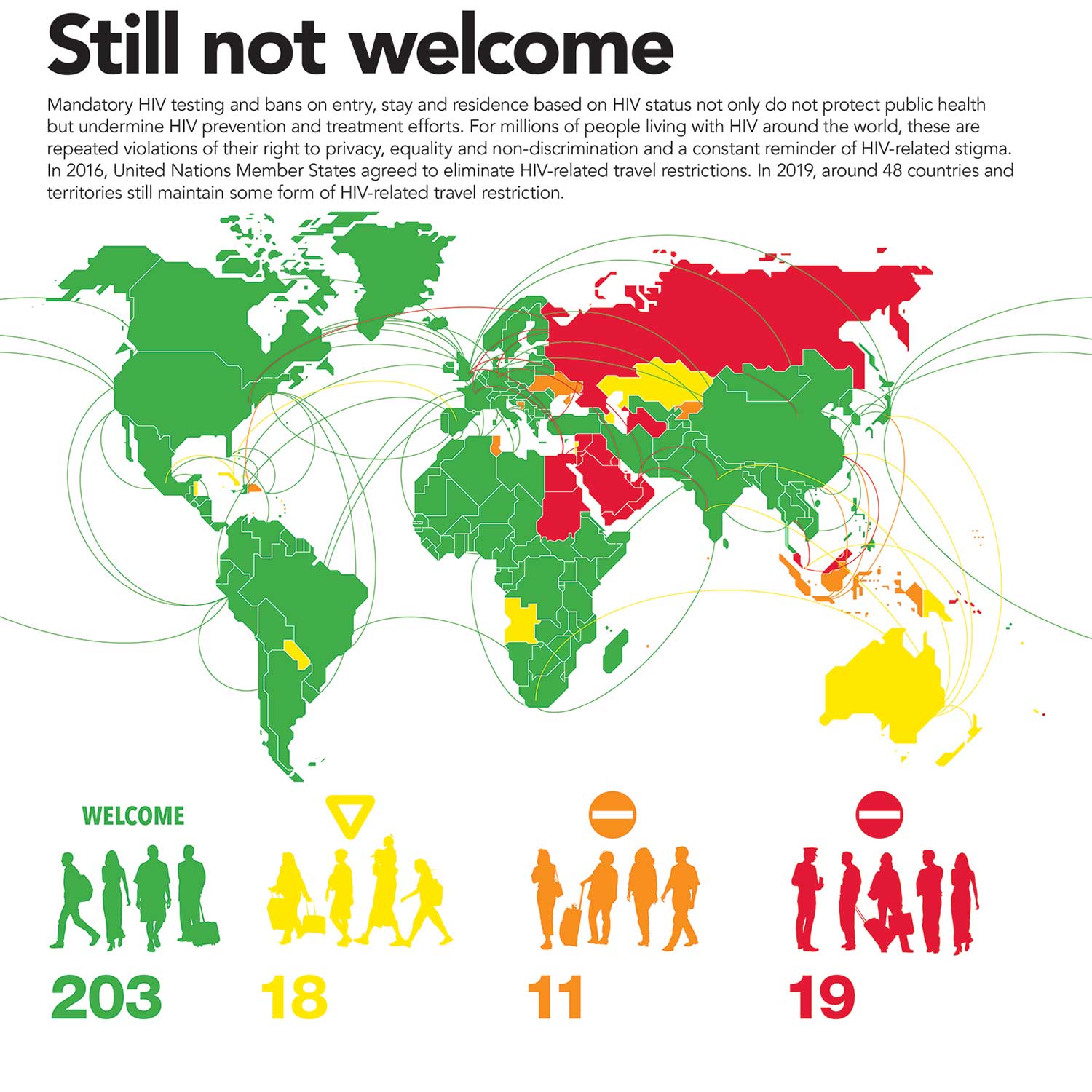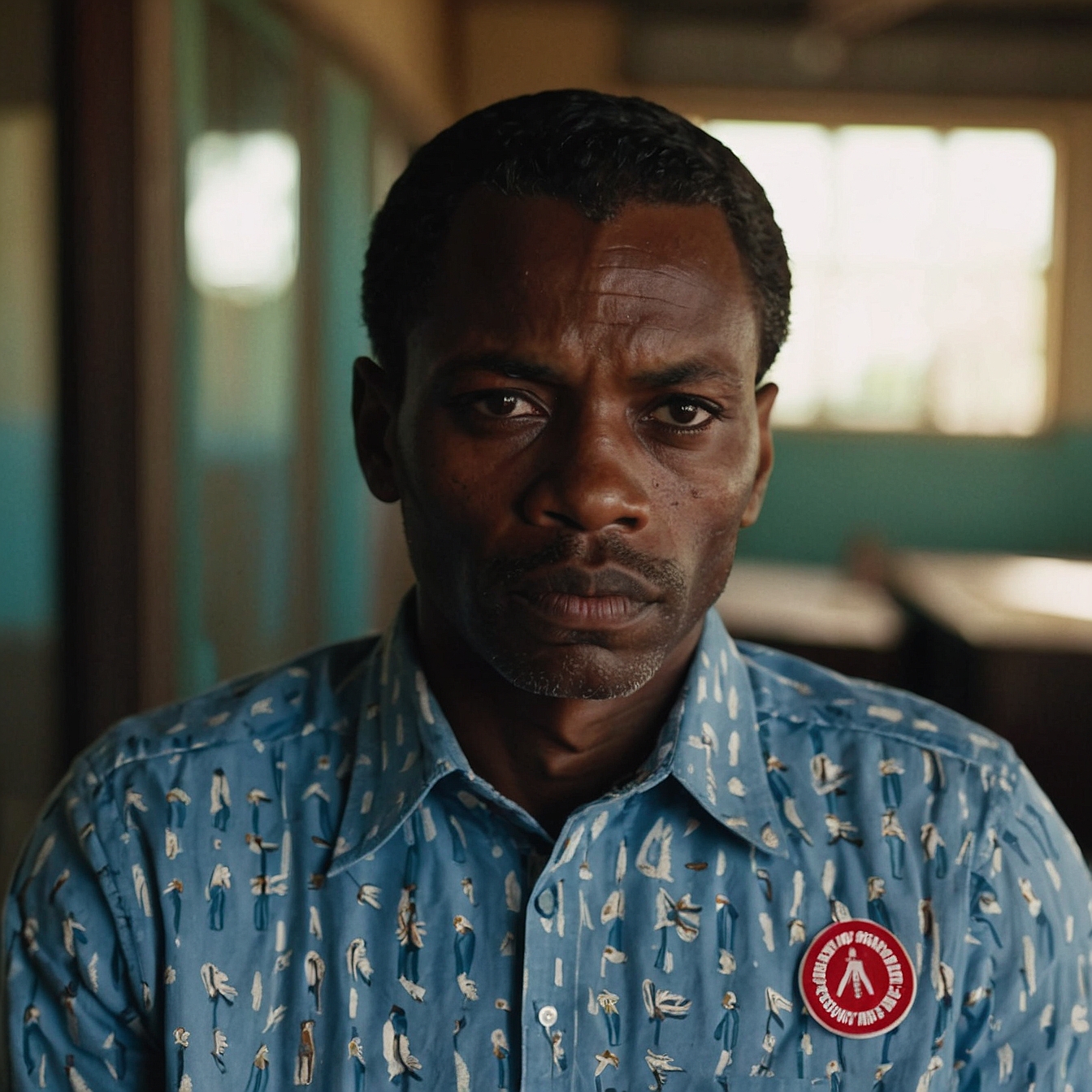Red Ribbon Travelers
For travelers with HIV, planning ahead and taking necessary precautions can help ensure a safe and enjoyable trip. Here are some tips and advice:

Consult with Healthcare Provider
Before traveling, consult with your healthcare provider or a travel medicine specialist to discuss your travel plans. They can provide personalized advice based on your health status, destination, and any specific concerns you may have.

Medication and Supplies
Ensure you have an adequate supply of your HIV medication for the duration of your trip, plus extra in case of unexpected delays. Keep medications in their original labeled containers to avoid any issues with customs or security checkpoints. It’s also wise to carry a copy of your prescription and a letter from your healthcare provider explaining your condition and the need for medication.

Research Healthcare Services
Research healthcare services available at your destination, including access to HIV treatment and support. Make a list of HIV clinics or healthcare facilities in the area and their contact information in case you need assistance while traveling.

Insurance Coverage
Check your travel insurance policy to confirm coverage for HIV-related care and emergencies. Consider purchasing additional coverage if needed, especially if you’re traveling to a destination where medical services may be limited or expensive.

Stay Up-to-Date on Vaccinations
Make sure your routine vaccinations are up-to-date, as people with HIV may be at increased risk for certain infections. Discuss any additional vaccinations recommended for travelers to your destination with your healthcare provider.

Avoid Risky Behaviors
Take precautions to avoid risky behaviors that could expose you to HIV or other infections, such as unprotected sex or sharing needles. Be aware of local HIV prevalence rates and take appropriate precautions if engaging in sexual activity or seeking medical care abroad.

Protect Your Healt
Maintain a healthy lifestyle while traveling by eating nutritious food, staying hydrated, getting enough rest, and avoiding excessive alcohol or drug use. Protect yourself from mosquito bites and other potential sources of infection by using insect repellent and practicing good hygiene.

Know Your Rights
Familiarize yourself with the laws and regulations related to HIV/AIDS in your destination country. Some countries have restrictions on entry, stay, and residence for people living with HIV, so it’s essential to know your rights and any requirements before traveling.

Stay Informed
Stay informed about HIV/AIDS-related issues and updates, both globally and in your destination country. Keep abreast of any travel advisories, health alerts, or other relevant information that may affect your trip.
By taking these precautions and planning ahead, travelers with HIV can minimize potential risks and enjoy their travel experiences safely.

ABOUT Our initiative
Our initiative aims to reduce the inconvenience and stigma all those affected by HIV / AIDS have while traveling for holidays or for work. It is well known that HIV patients, albeit under viral anti-retro therapy and therefore in a regime of non-transmissibility of the virus, have problems entering important countries such as the Russian Republic or the Emirate of Dubai, our mission is to fight this discrimination, but also to create the cultural conditions for a normal social life even in the normal world. Another project that we plan to carry out through the support of the network is the creation of reception centers to give support to children with HIV / AIDS in South East Asia, the Kingdom of Thailand and neighboring countries. The Unites States of America removed its entry restrictions for people living with HIV in January 2010. The legislative change in the USA and the similar changes announced recently in China received broad media coverage.
We very much hope that these examples will have a domino effect, resulting in the revision of legislation in other countries which currently impose entry or living restrictions on people living with HIV (PLHIV). We must also keep in mind that there are still countries in Europe maintaining restrictions which discriminate against people living with HIV.

RED RIBBON TRAVELERS
We very much hope that these examples will have a domino effect, resulting in the revision of legislation in other countries which currently impose entry or living restrictions on people living with HIV (PLHIV). We must also keep in mind that there are still countries in Europe maintaining restrictions which discriminate against people living with HIV.
For many people, travel is an important aspect of life. Some choose to benefit from the positive quality-of-life effects which come from participating in leisure travel.

Stay Informed
Others have to stay in foreign countries for long periods due to personal or professional reasons. Our data collection has become a reliable point of reference for PLHIV, providing them with up-to-date information which allows them to decide on the most appropriate behaviour before travel, as well as acting as an indicator of the extent of discrimination against people with HIV face in different parts of the

